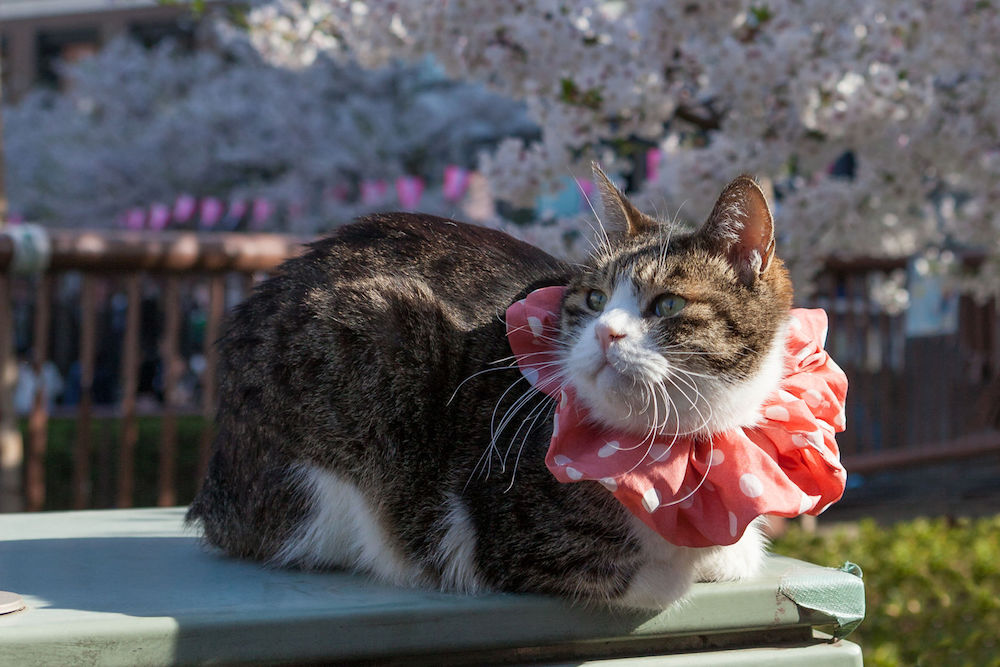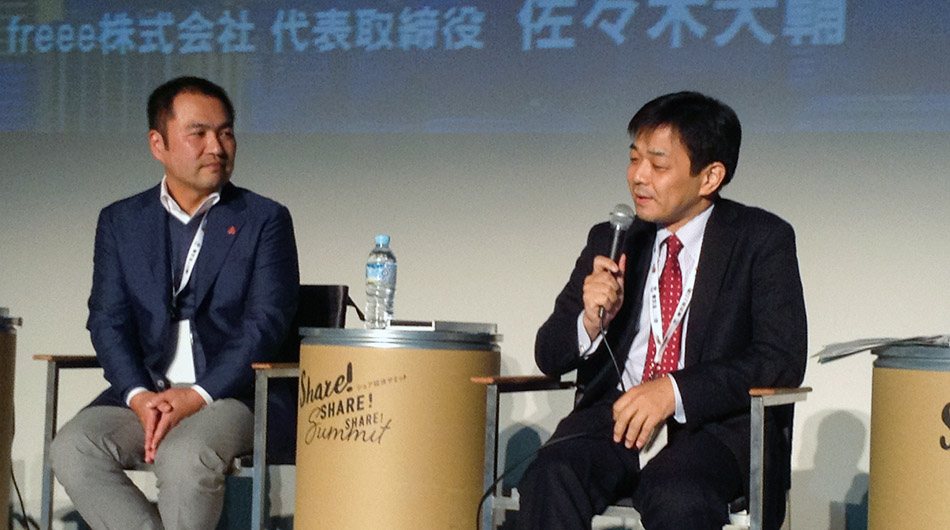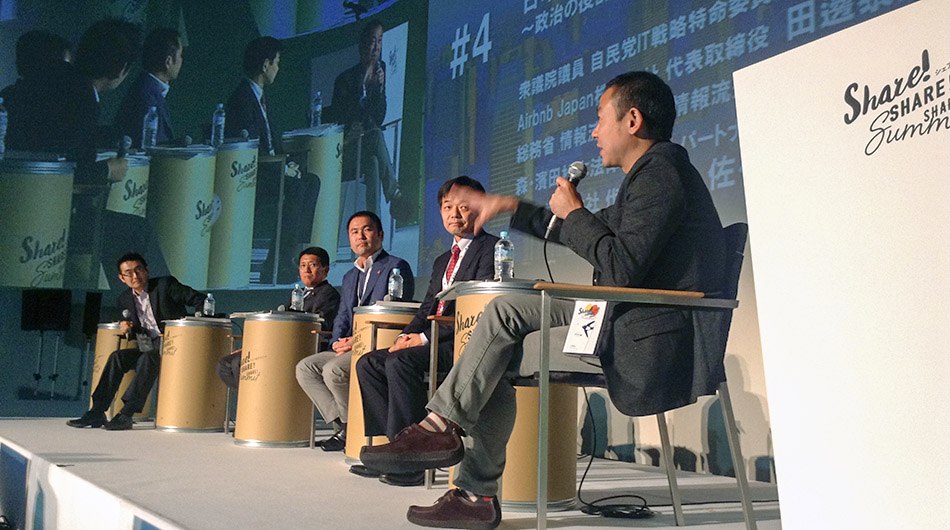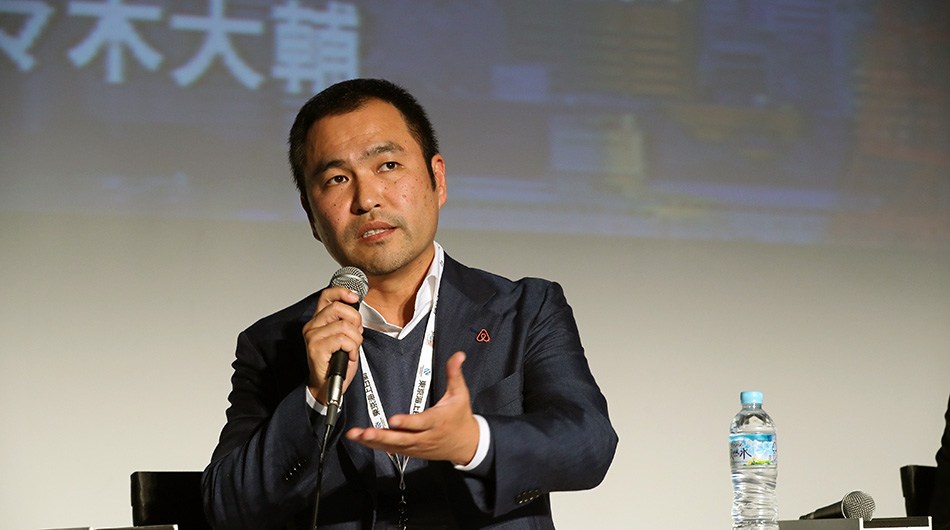
The cat at Meguro river, a popular cherry-blossom viewing spot in Tokyo. Photo credit: Copyright: pitisirisriro / 123RF.
In Japan, the “sharing economy” is still in its infancy. Roughly 75 percent of people are not interested in Uber, Airbnb, and other such apps, according to a study by the government – with around 60 percent voicing concerns over how accidents or other problems would be handled.
“Japan does kind of stay away from grey areas. As the government we need to remain on the conservative side,” explains Takuo Imagawa from the Ministry of Internal Affairs and Communications.
For billion-dollar services like Uber and Airbnb, it’s less about asking for forgiveness or permission, and more about waiting to see what happens.
Takuya Hirai, a member of the House of Representatives and head of the Liberal Democratic Party’s special committee on information technology, admits that many of Japan’s regulations need to be updated to better allow for modern businesses. For example, many of the laws for the hotel industry were created in the late 1940s, setting strict rules on the size of check-in desks, requiring soap dishes for bathrooms, and not allowing western style beds in Japanese style rooms.

Takuo Imagawa (right) from the Ministry of Internal Affairs and Communications.
Takuya wants startups to approach the government, saying it is open to new ideas. “If you’re doing something that seems fun, or if you’re doing something that is good for society, you should appeal to that point,” he suggests.
Takuo and Takuya were talking onstage at Share Summit, attended by Uber, Airbnb, and an array of prominent startups in the industry.
Filling the gap
Japan’s government has been quick to support sharing economy services when doing so provides obvious benefits. AsMama and Space Market have found success by addressing Japanese problems with a lack of daycare facilities and unused spaces, respectively.
Although Uber’s test program in Fukuoka last year was shut down for paying drivers without a taxi license, a pilot program by the company was started this year in conjunction with local governments to assist elderly passengers in places that lack public transportation.

Panel discussion on the future of the sharing economy in Japan.
Airbnb can also help the government out of a real jam. By 2020, the year of the Tokyo Olympics, Japan is expecting 40 million tourists annually, double the original target of 20 million surpassed in October of this year (PDF). Japan needs an extra 41,319 hotel rooms (PDF) at a cost of US$4.8 billion to accommodate the huge influx of travelers. And that was based off the 2014 calculation of 25 million yearly visitors in 2020.
“10 percent of all Japan visitors stay in an Airbnb.”
Airbnb hosts in Japan are technically only allowed to operate in parts of Osaka and Tokyo (PDF), but more special economic zones allowing services like Airbnb are anticipated because there are few feasible ways for Japan to hit its 2020 goals.
Airbnb’s strategy in American cities varies widely, but in Japan the company especially walks a tight line.
“It’s a not a game,” says Airbnb’s Japan head, Yasuyuki Tanabe, in an interview with Tech in Asia. “We just want to make sure that we become part of the community and we spread through the right process.”
Things are progressing. Last month the required length of stay in Airbnb-style rentals was reduced from six nights to two. While hotel laws are expected to be further relaxed to favor both the traditional industry and startups, a new law expected to be enacted next year limits hosts of Airbnb and other short-term rentals to a maximum of 180 days per year.

Head of Airbnb Japan Yasuyuki Tanabe. Photo credit: Sharing Economy Association Japan.
Yasuyuki, unable to comment on the regulations, says Airbnb is in continuous discussions with the government to clarify how they can work together.
The challenge
“The challenge is to make sure people understand what Airbnb is,” states Yasuyuki. While awareness is still low, he says the number of inbound tourist to Japan who used Airbnb grew fivefold last year and that 10 percent of all Japan visitors stay in an Airbnb.
To help educate the public, the startup has been busy building the host community with meetups and providing how-to technical support. Yasuyuki says the team is very focused on explaining exactly what they do to members and making sure there are no gaps in expectations.
From an economic point of view, Airbnb had a US$1.9 billion impact on Japan’s GDP in 2014, according to a study done with Waseda University’s business school. Although Airbnb could not provide raw data for the study, Yasuyuki says it’s based on what guests spend money on while in the area, plus cleaning and other industries that receive a boost from more rentals. Internal research showed the economic impact rose to US$4.4 billion in 2015.
Yasuyuki believes people have an intrinsic desire to meet and try new things. Three-and-a-half years ago he stayed in an Airbnb in the US and it inspired him to join the company.
“It completely changed my image of San Francisco.” Yasuyuki remembers waiting in line at a cafe. “It’s magic. I was able to do that because of the host.”
This post Airbnb eyes the prize as Japan opens up to the sharing economy appeared first on Tech in Asia.
from Tech in Asia https://www.techinasia.com/japan-sharing-economy-airbnb-strategy
via IFTTT
No comments:
Post a Comment